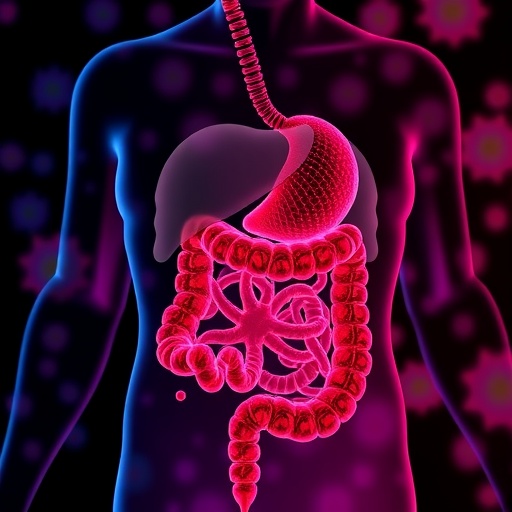
In a remarkable stride in developmental biology, scientists at Cornell University have pinpointed the genetic mechanisms that lead to the distinct developmental patterns observed between male and female bovine embryos as early as seven to eight days post-fertilization. This groundbreaking research, recently published in Cell & Bioscience, sheds light on fundamental sex-based biological differences that extend well beyond the bovine species, holding profound implications for human health, reproductive medicine, and agricultural sustainability.
Long observed yet poorly understood, the phenomenon that male mammalian embryos develop more rapidly than their female counterparts has baffled scientists since the 1990s. For decades, the scientific community has known that this differential growth rate exists across multiple species including humans, but until now, the intricate genetic basis behind these differences remained enigmatic. The Cornell team’s innovative approach combined precise embryo cultivation with advanced RNA sequencing techniques, enabling an unprecedented genome-wide examination of gene expression differences according to the genetic sex of each embryo.
By meticulously growing bovine embryos in vitro and conducting high-resolution RNA transcriptome profiling, the researchers detected conspicuous disparities in gene regulation between embryos with XY (male) and XX (female) chromosomal configurations. Male embryos were found to prioritize genetic pathways related to enhanced energy metabolism and cellular proliferation, effectively accelerating their growth trajectory relative to females. In striking contrast, female embryos exhibited enriched expression of genes involved in sex differentiation, gonadal development, and immune-related inflammatory pathways, which suggest a divergent developmental focus with far-reaching physiological consequences.
This discovery highlights a foundational layer of sexually dimorphic development established well before the influence of traditional sex hormones such as estrogen and testosterone, which generally manifest later in gestation and adulthood. The early onset of these differences suggests that chromosomal sex directly orchestrates distinct developmental programs from the earliest embryonic stages, independent of hormonal signaling. These insights further underscore the critical role of sex chromosomes and sex-linked genes as intrinsic modulators of developmental biology, affecting cellular behavior, disease susceptibilities, and immune system maturation throughout life.
Jingyue “Ellie” Duan, assistant professor of functional genomics at Cornell’s College of Agriculture and Life Sciences and a co-author of the study, emphasized the significance of these findings in the broader biomedical context. Duan observed that sex differences are frequently overlooked in both basic research and clinical trials, noting the historical predominance of male mouse models in preclinical studies. This oversight has impeded comprehensive understanding of sex-specific disease onset and progression in conditions such as Alzheimer’s disease, autoimmune disorders, and cardiovascular illness. Duan’s research suggests that biological sex imprints a blueprint at the genome regulation level, shaping health outcomes from the very beginning of life.
The team’s approach was enabled by cutting-edge advances in genome sequencing technology, which allow for the precise quantification of gene expression patterns at a single-embryo level. This level of resolution reveals an intrinsic genetic architecture driving sexual dimorphism, rather than variations solely attributable to environmental factors or later developmental hormones. Such fundamental insights are poised to transform strategies in reproductive medicine, such as optimizing in vitro fertilization (IVF) protocols for both humans and cattle by tailoring interventions to the specific developmental needs of male and female embryos.
Beyond its biomedical relevance, this research carries substantial implications for the dairy industry, which heavily relies on cattle reproduction technologies to sustain milk production and livestock health. Given that bovine embryos provide a robust and ethically viable model for human developmental studies, understanding the genetic underpinnings of sex differences in bovine embryogenesis similarly enhances agricultural efficiency and sustainability. Insights gleaned from this work have the potential to refine IVF success rates in cattle, thus contributing to more resilient food systems amid global population growth and environmental challenges.
The project epitomizes the power of interdisciplinary collaboration, blending the expertise of Duan’s genomics-centered laboratory with that of Soon Hon Cheong’s reproductive medicine team at Cornell’s College of Veterinary Medicine. Such synergy was critical to designing experiments that integrate molecular genomic data with reproductive biology, further enriching our comprehension of early embryo development. Ongoing research efforts are expanding this foundational work by extending the observation window to embryos from fertilization through day eight, aiming to unravel the dynamic genetic shifts that unfold during this pivotal window.
Funding from the National Science Foundation and the Cornell Center for Vertebrate Genomics propelled this research forward, attesting to the high priority accorded to understanding vertebrate developmental mechanisms through modern genomic lenses. As this field progresses, the insights uncovered are expected to catalyze novel therapeutic avenues, more inclusive clinical trials, and precision medicine approaches that account for sex differences from the earliest stages of life.
In summary, Cornell’s discovery of sex-specific gene regulatory networks active mere days after fertilization offers an invaluable paradigm shift. It reveals that sex differences are hardwired at the genomic level, long before hormones sculpt physical traits or secondary sexual characteristics appear. This intrinsic divergence in early embryonic development not only explains the male-biased growth advantage but also opens new frontiers in personalized medicine, reproductive biology, and sustainable agriculture. Ultimately, these findings challenge researchers and clinicians alike to rethink how sex influences biology from the very inception of life to health, disease, and aging.
Subject of Research: Genetic and molecular mechanisms underlying early sex differences in bovine embryo development
Article Title: (not explicitly stated in the provided content)
News Publication Date: August 27, 2025
Web References:
Research Article: https://cellandbioscience.biomedcentral.com/articles/10.1186/s13578-025-01459-x
Cornell News Release: https://news.cornell.edu/stories/2024/02/cow-has-potential-therapeutic-research-model
Additional context on research topics and collaborators’ profiles through Cornell University web resources
Keywords: Embryos, Embryology, Ontogeny, Developmental biology, Life sciences
Tags: agricultural sustainability researchbovine embryo researchdevelopmental biology breakthroughsembryo cultivation techniquesenergy metabolism in embryosgene expression in male vs female embryosgenetic differences in embryosimplications for human healthmale embryo developmentreproductive medicine advancementsRNA sequencing in developmental biologysex-based biological differences




